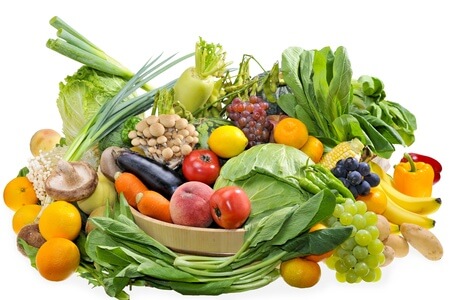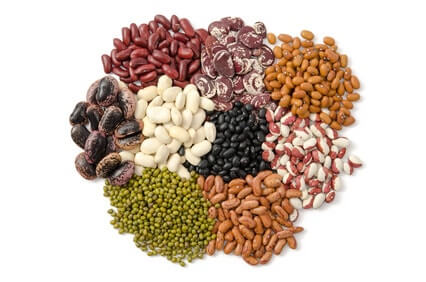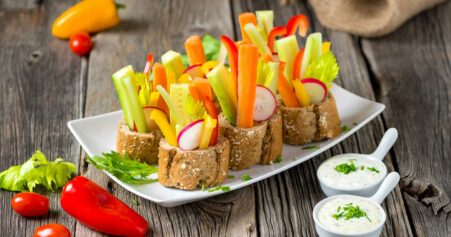Table of Contents
“But I can’t afford that!” – the apparently high costs are a relatively common argument against a vegan diet. However, this assumption is more of a myth, although such statements should be put into perspective. If you know which foods to choose, a vegan diet can fit into any budget. Of course, you can spend a lot of money on your diet, either as a vegan or as an omnivorous eater, but you do not have to. The choice of products, quantity and quality, for example, are decisive criteria for the cost of our food.
But where does this prejudice of the unaffordable vegan diet come from? How much does a vegan diet really cost? And how can you eat a healthy plant-based diet on a budget? In this article, we will dispel the myth of the expensive vegan diet and show you how to get through the day on a budget while still getting plenty of energy and nutrients.
Switching To a Vegan Diet – Unaffordable?
The vegan diet is on the rise and continues to spread. In an economy-driven society such as Central Europe and Northern America, it did not take long for the industry to meet the growing demand for vegan products. Whether it is the soy burger or the “superfoods” from all over the world, being vegan has its price. But are these products a must for vegans?
Any change takes time, and this is especially true for long-established eating patterns. Once you have decided to go vegan, but have not dealt with the theory and practice, the search for equivalent alternatives begins. You fixate on substitutes for the meat, fish, eggs, and milk (products) you used to consume. And yes, you will find them in every supermarket these days. The shelves are well stocked with vegan alternative products and the range is constantly growing. The products certainly can be consumed. But a diet based on those is often not healthy and not inexpensive either.
Another example are the so-called superfoods: particularly nutrient-rich, rarely grown domestically, and touted by advocates of the “healthiest diets”. They are, in fact, high in nutrients, but they do not need to be included in your diet every day for you to be healthy. If you can afford goji berries and spirulina, there is nothing wrong with it. But if you cannot afford them, you can make it as well.
At first glance, certain vegan cafés and restaurants seem to be much more expensive than conventional ones. This may be because the owners focus on organic products and sustainability, or because they want to raise awareness about healthy eating in general. This idea is certainly worth supporting, and appropriate for some occasions. However, as with mixed diets, eating out regularly comes at a cost. If we compare a traditional restaurant with meat dishes and vegetarian meals, the latter are usually offered at a lower price.
Vegan Alternative Products
Soy sausage, tofu burgers, and vegan cheese sandwiches have their place and are especially helpful during the transition to a vegan diet. With their hearty taste they are most of the time still ahead of conventional meat when it comes to ecological, ethical and health issues. On the other hand, they are highly processed, therefore low in micronutrients, and contain a lot of salt and fat. And they come at a price. There are several reasons why meat and cheese substitutes do not pay off in the long run.
Plant Staples
 In contrast to that are the less processed, much healthier and cheaper whole plant foods that are considered staples for vegans. On the one hand, there are fresh foods such as fruits and vegetables. On the other hand, there are the shelf-stable products, such as grains, pseudo grains, and legumes. These groups are at the bottom of the Vegan Food Pyramid anyway, which means they are the base of the vegan diet. They are natural and also affordable. With fruit and vegetables, there are a number of factors that come into play when you focus on price: organic or conventional, local or exotic, seasonal or stored and flown in. Good quality comes at a price and is a question of priority. How much do you want to pay for eating healthy? In addition, vegetables in the supermarket are not necessarily more expensive than meat.
In contrast to that are the less processed, much healthier and cheaper whole plant foods that are considered staples for vegans. On the one hand, there are fresh foods such as fruits and vegetables. On the other hand, there are the shelf-stable products, such as grains, pseudo grains, and legumes. These groups are at the bottom of the Vegan Food Pyramid anyway, which means they are the base of the vegan diet. They are natural and also affordable. With fruit and vegetables, there are a number of factors that come into play when you focus on price: organic or conventional, local or exotic, seasonal or stored and flown in. Good quality comes at a price and is a question of priority. How much do you want to pay for eating healthy? In addition, vegetables in the supermarket are not necessarily more expensive than meat.
High-quality nuts and oils also come at a price. But as the Vegan Food Pyramid shows, the fat sources are at the top, which means they should be consumed in smaller quantities. So if you make your main food sources grains and legumes, and supplement them with vegetables and fruits, the vegan diet can be easily affordable.
Local and Seasonal
Getting your food locally has several advantages: shorter transportation routes mean less energy needed, shorter storage time, riper harvests, and you are ahead of the game in terms of ecology and nutritional value. Seasonal fruits and vegetables in particular are rich in micronutrients and secondary plant compounds if they are harvested when ripe and delivered directly to the market. In addition, local farmers are supported, which is an economic advantage.
Legumes or Meat?![Pflanzliche Proteine kombinieren]()
If you compare protein sources, the vegan diet tends to win on the prize front. Because lentils, peas and beans are not only a good source of protein, they also lead to long-lasting satiety due to their high fiber content. As food in stock in dry form or bought from a can, they not only have a long shelf life, but are also inexpensive. Meat, on the other hand, has to be bought fresh and stored in a cool place, which also pushes up the price due to the cold chain. The type also plays a decisive role in products of animal origin: organic meat has its price. At the same time, plant foods also contain all the essential amino acids, and the protein quality can be increased by combining them.
Global Impact on Food Prices
Considering the fact that the demand for vegetarian and vegan food is increasing, there are consequences for the price of grain to be expected. Because this would reduce the need for feed grains, which in turn would reduce the price of corn. As a result, grain would be less expensive to sell, and at the same time the ecologically damaging consequences of (mass) livestock farming would be reduced. After all, less land is needed for feed production. In principle, it is much less expensive to produce nutrients and energy from plant resources than from resources of animal origin. However, to address the problem of global hunger, meat production would have to be reduced on a large scale in favor of grain crops for human consumption (Lusk and Norwood, 2009).
Especially, inhabitants of Western societies, have the privilege of choosing their food. The supply is large; the choices and thus the demand have a lasting effect on the production of food and also on the global situation. Of course, it is also a question of priorities: How much money, time and energy do I spend on my health and therefore on the quality of my food choices? This also applies to mixed diets. Low-quality products, often consumed by low-income and vulnerable populations, are cheaper than organic meat or vegetables (Darmon and Drewnowski, 2008).
Tips for Inexpensive Food
 To get through the day not only healthy, but also “wallet-friendly,” it is worth investing time in cooking and preparing your own meals. Especially at work, school or university, it is important to plan ahead. Porridge with fruit in a jar, veggie sticks, fruit or sandwiches – everything is quickly prepared and the fight against hunger is declared.
To get through the day not only healthy, but also “wallet-friendly,” it is worth investing time in cooking and preparing your own meals. Especially at work, school or university, it is important to plan ahead. Porridge with fruit in a jar, veggie sticks, fruit or sandwiches – everything is quickly prepared and the fight against hunger is declared.
Basic ingredients instead of convenience products: Grains, vegetables and fruit are not only healthier and fresher, they are also cheaper. Especially if you are on a tight budget, vegan substitutes should not be a regular part of your menu.
Conjure up flavorful dishes from simple ingredients with spices and herbs. Cheap, ordinary tomato sauce can be transformed into an Italian experience with onions, garlic, zucchini, oregano, and fresh basil.
Markets or farms in your area are usually cheaper than larger health food stores. You also get the best quality directly from the grower because the products are fresh and rich in nutrients and secondary plant compounds.
Some grocery stores, including organic stores, sell food at reduced prices when it is still safe to eat but not completely fresh. In this context, the Foodsharing initiative is dedicated to rescuing food from the trash. With these measures, you can reduce the costs of a vegan diet.
Conclusion: Vegan Diet – Costs
In summary, a vegan diet does not have to be expensive, at least not more expensive than a diet with the regular consumption of products of animal origin. Of course, you can invest more or less money in any form of diet. Natural, unprocessed foods are not only good for you nutritionally, but they are also easier on your wallet than vegan substitutes. Staples such as grains, grain products, and legumes should form the base of your diet as the least expensive category. Vegetables and fruit are excellent complements, and you will usually make the best choices, both nutritionally and financially, with regional and seasonal varieties.
Of course, vegan substitutes, superfoods and eating out do not have to be completely banned, but they do cost more. For a vegan diet, these options are not necessary and not cost effective.
Recipes:
1. Couscous Vegetable Pan
Ingredients (4 servings):
2 onions
200 g eggplant
200 g zucchini
250 g carrots
150 g tomatoes
150 g chickpeas (soaked or canned)
300 g couscous
250 ml vegetable broth
5 tablespoons olive oil
Spices: 1 pinch salt, pepper, basil, oregano, 1 dash lemon juice
Preparation:
- Wash the vegetables and cut into bite-sized pieces. Drain the chickpeas through a sieve and rinse with water.
- Peel and finely chop the onions and garlic.
- Heat the vegetable broth in a pot, remove from the heat and add the couscous. Allow the whole thing to swell for about 5–10 minutes.
- Then heat the olive oil in a large frying pan, sauté the onions until translucent, add the garlic and the vegetables. Everything is steamed on low heat for about 10 minutes.
- Add the chickpeas to the pan and stew for another 5 minutes.
- At the end, fold in the couscous, mix everything well and season with the spices.
2. Carrot-Ginger Soup
Ingredients (4 servings):
750 g carrots
1 piece fresh ginger (about 2 tablespoons big)
1 apple (sweet)
1 tablespoon olive oil
1 onion
1 clove of garlic
1 l vegetable broth
spices: salt, pepper, if wanted nutmeg
Preparation:
- The onion, garlic clove and ginger are peeled and finely chopped.
- The carrots are washed, peeled and cut into slices.
- Then peel the apple, remove the core and cut into slices.
- The vegetable broth (1l) is prepared in a separate pot.
- In a large saucepan, heat the olive oil and sauté the finely chopped onion for about 3 minutes until translucent. Add the chopped garlic and ginger and sauté for another 3 minutes.
- Afterwards, the carrot and apple pieces are added to the pot and heated for another 3 minutes.
- Then add the vegetable broth and let it simmer on medium heat for about 20 minutes.
Finally, the entire content is pureed, seasoned with spices and served.








Leave a Reply